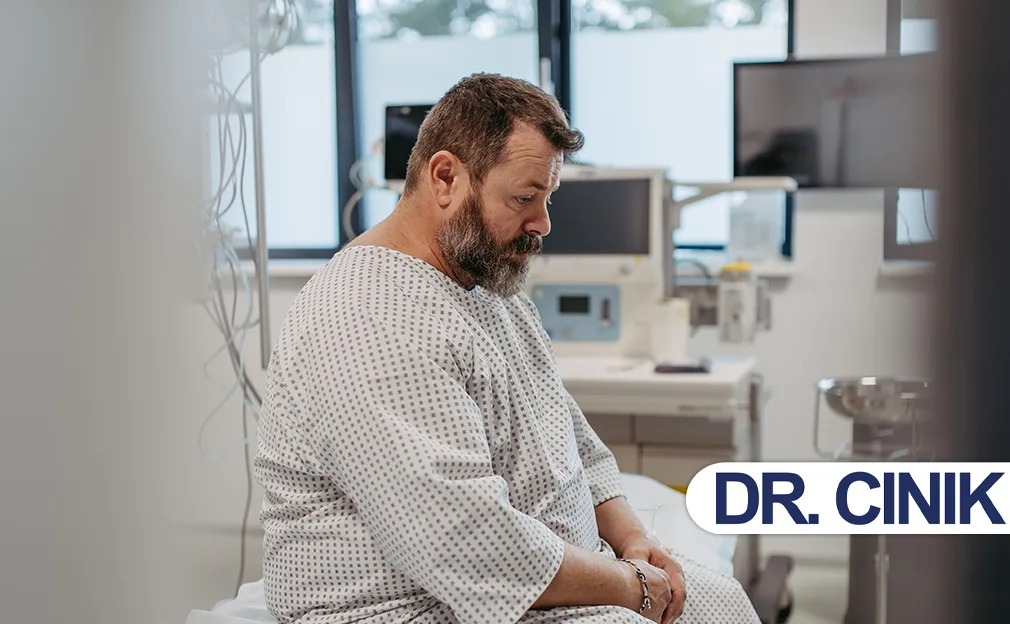If you’re thinking about bariatric surgery, aka weight-loss surgery, nobody will blame you. It can feel like cracking the secret code to a healthier, happier life. But here’s the thing: having this life-changing procedure in the wrong place can be a nightmare.
The Rise of Medical Tourism: Why Turkey’s on Everyone’s Radar
Medical tourism isn’t just a trend anymore: it’s a full-on global movement. With the global industry now estimated at over $400 billion and growing at a whopping 25% annually, more people than ever are packing their bags for health-related reasons, not just sunshine and beaches. And guess who is among leaders? Turkey.
So why are people flying to Turkey for dental work, cosmetic surgery, hair transplants, and bariatric procedures? A few reasons: affordable prices, shorter waiting times, and high-quality care, often in state-of-the-art hospitals with internationally trained doctors. Throw in stunning scenery, luxury hotel recovery packages, and delicious post-op Turkish tea, and it’s easy to see the appeal.
In a nutshell, medical tourism can be an amazing option, but only if you choose the right clinic. When done right, it’s not just cheaper; it’s life-changing (in a good way). Just make sure your passport isn’t the only thing in order before booking that flight.
The Main Reason to Go Abroad for Obesity Treatments
Let’s talk about cost. A private gastric sleeve or bypass in the UK can set you back £10-15k, with typical NHS waiting lists stretching over two years, according to The Guardian. But hop over to Turkey, and suddenly you’re paying £3-5k, often including flights and hotels.
Quick math: you save a ton, get the surgery fast, and — bingo! Zillions of your luxe photos are plastered all over Instagram. But it’s not all smooth sailing: that bargain might not include safe care, proper follow-up, or experienced surgeons.
Despite the size and speed of the boom, the global medical tourism industry remains largely unregulated (BMJ Global Health, 2025). While Turkey has many reputable, accredited clinics and award-winning surgeons, it also has its share of less-than-stellar providers.
Doctors Are Warning of Cheap Surgery
Dr. Jessica McGirr, a researcher from Dublin and Imperial College London, points out that bariatric surgery is often being pushed on social media, especially through flashy “before and after” photos on TikTok and Instagram. The problem is that complex (and yes, chancy) surgical procedures are being sold like a quick-fix beauty treatment. This is serious surgery, she explains, meant to treat a long-term health condition, and it comes with real risks. It’s not just about looks — it’s about health, and it needs to be treated that way.
Real-Life Horror Stories: The Danger Is Real
- Nerve damage & Wernicke’s encephalopathy: Dr. Nicholl at Sandwell & West Birmingham NHS Trust reports patients returning from abroad with horrific nerve pain, walking troubles, double vision, and in some cases, Wernicke’s encephalopathy, which can be fatal.
- Surgical leaks, sepsis, death: One 20-year-old British woman died from sepsis after a gastric sleeve abroad. Another mum in Ireland nearly died when her spleen was damaged during an operation. She went into a septic shock, which resulted in a spleen removal; what’s more, the woman is now bound to taking antibiotics for life, warns The Sun.
- Internal infection, a ball of “concretized pus” in stomach, and 3 years of starvation: A UK patient, Pinky, spent three years unable to eat solid food after having gastric sleeve surgery abroad, wrote The Sun. Fortunately, surgeons managed to remove a huge ball of hardened pus and later create a small new stomach for Pinky.
These aren’t freak accidents. They’re systemic issues: some clinics, eager to offer cheaper procedures and overturn competitors (competition in this industry is really fierce in Turkey) decide to cut corners. It quite predictably leads to rushed clinics, hiring inexperienced staff, and inadequate aftercare.
Does it mean you should leave your dream of bariatric surgery in Turkey? Not at all. Most Turkish clinics are excellent; only a few of them skimp on quality. So, if you don’t want to end up in one of the latter, you should indeed begin with doing your homework thoroughly. After all, no money can buy health, lost after a sloppily-done operation!
Common Types of Bariatric Surgery in Turkey: What You Need to Know
Turkey offers the full bariatric menu: gastric balloon, sleeve, bypass, and even “mini” or single-anastomosis procedures — all at tempting price points. Here’s the breakdown:
Gastric Balloon
- A non-surgical option where a balloon is placed to reduce stomach volume.
- Costs about $1,600–3,500
- Pros: Low risk, no permanent changes, quick.
- Cons: Temporary (balloon is removed after 6-12 months); mild side effects like nausea.
Sleeve Gastrectomy (Gastric Sleeve)
- Removes ~80 % of the stomach, turning it into a tube.
- The most popular option in Turkey. Costs range from $3,250–5,500.
- Pros: Excellent appetite control; hunger hormone reduction.
- Cons: Permanent; can lead to nutritional deficiencies, leaks, reflux, nerve damage
Roux-en-Y Gastric Bypass
- Creates a small stomach pouch and reroutes the small intestine.
- Cost: around $3,800–5,600.
- Pros: Strong weight loss, effective for diabetes.
- Cons: Nutrient malabsorption, longer recovery, higher surgical risk (bleeding, clots).
Mini-Gastric Bypass / Single-anastomosis Duodenal Switch (SADS)
- Combines sleeve + intestinal bypass.
- Price: ~$3,250–$5,500
- Pros: Maximal weight loss.
- Cons: Highest risk of malnutrition, vitamin deficiencies.
Gastric Band (“Lap-Band”)
- Rare these days, but still offered: silicone band around the stomach.
- Costs around $5,000+ globally; less common in Turkey.
- Pros: Adjustable/reversible.
- Cons: Slower weight loss; complications.
Read more: What Are the Non-Surgical Alternatives to Bariatric Surgery?
How to Choose the Right Clinic & Surgeon: Trust, Not Just a Tour
If Turkey is calling your name, how do you separate the dream from the nightmare? Here’s what to watch for: red flags and green lights:
Green Lights: Trust Indicators
- JCI accreditation or ISO certification: Clinics meeting international safety standards.
- Board-certified bariatric surgeons with photos of real cases and credentials.
- Transparent pricing showing what’s included: surgery, hospital stay, dietitians, follow-up.
- English-speaking care, and supportive coordinators.
- Solid aftercare: days of hospital stay, two-week supervised recovery, remote follow-up in your home country.
- Patient testimonials and outcomes, not just glossy photos.
- Referrals from trusted sources: physicians, support groups, patient forums.
Red Flags: Better Avoid
- “Too good to be true” prices ( we mean dangerously low, e.g. $2,000 for bypass.)
- Heavy reliance on Instagram glamour shots vs real medical data.
- No listing of surgeon credentials or missing international accreditations.
- Short hospital stay — overnight or same-day discharge for major surgery.
- No mention of nutritional follow-up, long-term vitamin supplements.
- Few or no real reviews; especially no horror stories (because quiet clinics likely hide problems).
What Can Go Wrong: Risks of Each Procedure
Even in the best hands, bariatric surgery is major surgery. But at a dodgy clinic, the risks multiply.
1. Gastric Balloon
- Usually low-risk, but balloon intolerance, ulceration, or early deflation are possible.
- Not a permanent solution: weight regain is likely without lifestyle changes.
2. Sleeve Gastrectomy
- Leaks at the staple line can cause sepsis.
- Stricture (narrowing) from scarring can block food passage.
- GERD (acid reflux) may worsen or appear anew.
- Nutrient issues: B12, iron, calcium.
- Neuropathy, Wernicke’s encephalopathy, permanent nerve damage, often seen in rushed or oversized sleeves.
3. Gastric Bypass
- Staple-line leakage.
- Internal hernias due to intestine rerouting.
- Dumping syndrome: nausea, palpitations after sugary meals.
- Lifelong nutrient needs, plus risk of bone density loss.
4. Mini-Bypass / SADS
- Highest malabsorption risk.
- Protein calorie malnutrition, vitamin deficit.
- Complex to manage, requires a strict lifelong supplement regimen.
5. Gastric Band
- Band slippage, port infection, erosion into the stomach.
- Slower results; often needs re-operations.
Systemic Risks (All Bariatric Surgeries)
- Surgical bleeding.
- Blood clots (DVT, pulmonary embolism).
- AnesthesiaEnsuring Comfort During Hair Transplants Sedation is used in hair transplantation to help patients remain calm and comfortable throughout the... complications (especially in patients with obesity).
- Death (~1 in 500 for gastric bypass, possibly more if aftercare is weak)
How to Protect Yourself: A Step-by-Step Checklist
- Verify accreditation: JCI, ISO, or equivalent.
- Check surgeon’s credentials: board certification in bariatric/upper GI surgery.
- Demand full transparency: ask for package details and stats (complication rates, deaths).
- Follow-up care plan: enough time in the clinic, plus remote follow-up once home.
- Diet & psychological support: must include pre-op and post-op sessions.
- Clear cancellation policies + medical insurance that covers abroad.
- Ask your local doctor for input, especially about aftercare.
- Trust your gut — if something feels off, don’t proceed.
- Plan fallbacks: know who will help if a complication arises back home (e.g. partner up with a local bariatric center for emergencies).
A Portrait of a Decent Turkish Clinic for Bariatric Surgery (Hint: It’s Ours)
Well, no advertising—just let me tell you what a proper clinic for obesity surgery in Turkey should be like:
- Our clinic is award-winning (5 international awards!), and our chief surgeon, Prof. Dr. Cengiz, has more than 20 years of experience. He is well-recognized worldwide for bariatric excellence and patient safety.
- We work in a JCI-accredited facility with full emergency and ICU backup.
- We have dietitians, psychologists, and online support to ensure your post-op period goes smoothly.
- We have enough junior and mid-level medical staff, so you’ll always have somebody nearby to help you or just say a friendly word.
- Prices are competitive yet not dirt-cheap. You’re paying for quality and safety.
So, now you know what to look for. There are lots of great clinics with excellent surgeons here in Turkey!
Learn more: How to Choose a Reliable Plastic Surgery Clinic in Turkey: The Complete 2025 Guide
Final Word: A Balanced, Thoughtful Approach
Bariatric surgery can be life-changing, making you healthier, stronger, happier. But shortcuts can turn your dream into a medical catastrophe.
To sum it all up, here are a few common-sense tips:
- Know your options and never rush into surgery.
- Check credentials, accreditation, and actual outcomes.
- Make sure there’s proper aftercare,both locally and abroad.
- Beware of bargain traps that skip essential care and qualifications.
If you want surgery done fast and cheap, Turkey may be appealing. But only choose a well-vetted, accredited clinic with an award-winning surgeon. Also, do have a plan for what happens when you step back onto your home soil.
Your health is priceless. Even big money saved isn’t worth it if you pay tenfold in grief, pain, or loss. Go into this journey with eyes wide open — because the right clinic isn’t just about savings, it’s about safety, recovery, and a genuine transformation.






